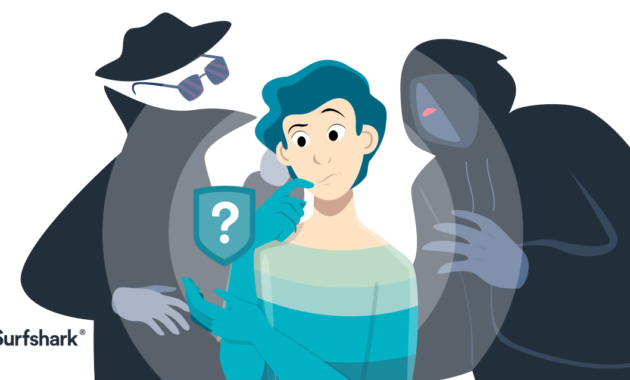
If you frequent the web, there’s a good chance that you’ve heard of virtual private networks. A virtual private network (VPN) secures your data and privacy. It can also protect you on public Wi-Fi, prevent your internet service provider from monitoring your connection, and help you bypass ISP (Internet service provider) throttling.
That’s all well and done, but what if I told you that not all VPNs are created equal? Cheap or free VPNs are dangerous and offer a false sense of security.
This article will explain why.
Are VPNs safe to use?
The short answer is yes, very! VPNs are a great way to protect your internet traffic and browsing activity, hide your location, and maintain privacy while out in the digital world. But, free VPNs are not as safe and secure as paid VPNs. They expose you to many privacy hazards and shady ad practices.
- Are VPNs safe to use?
- Why free VPNs are not safe
- The short version – Free vs. Paid VPNs
- They don’t protect your private data.
- They are limited.
- They have fewer additional features.
- Why private browsing is not safe
- How a VPN works
- What makes a VPN safe?
- 1. Secure protocols
- 2. No-log policy
- 3. Paid instead of free VPN services
- 4. Kill switch
- 5. Two-factor authentication
- 6. VPN provider history
- 7. RAM-only servers
- Is Surfshark VPN safe?
- Final thoughts – are VPNs safe and worth it?
Why free VPNs are not safe
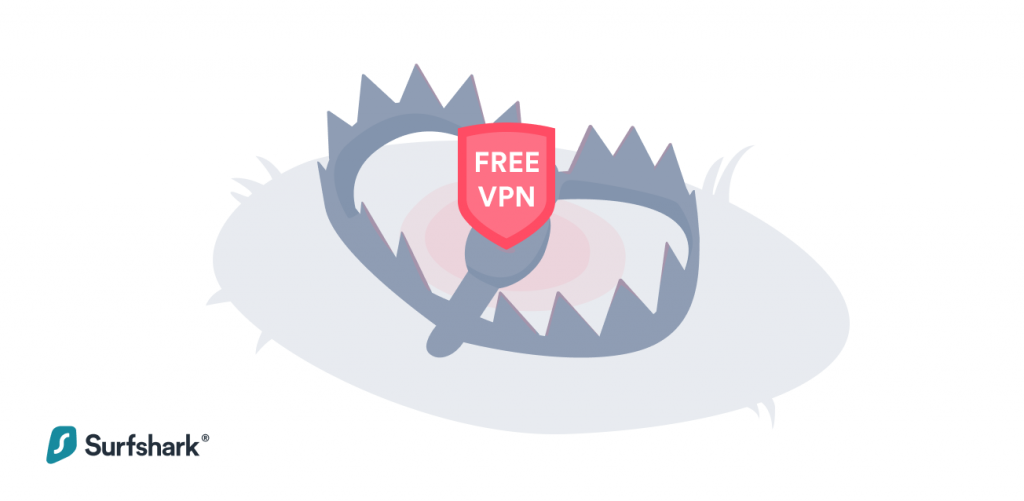
If you are looking for a VPN provider for safer internet access, you’ve probably encountered several companies that offer free services. Free stuff is always enticing, but how safe are free VPNs compared to paid ones?
The short version – Free vs. Paid VPNs
Paid VPNs outperform free VPNs in virtually all scenarios. A free VPN lacks speed, dependability, functionality, usability, and security. It’s cheaper, but you pay for it by exposing yourself to ads and your data to ad brokers and hackers. Paid VPNs are, in most cases, safe, secure, and reliable.
Let’s talk about it. Paid VPNs have a small price to pay, usually anywhere between $2 to $6 per month. However, free VPNs have hidden costs. Here are three big reasons why you will want to stay away from a free VPN:
- They don’t protect your private data.
Free VPNs lack funding, so in turn, they monetize your data for profit. Protecting your data is a VPN’s primary function, and free VPNs expose your privacy like it’s anyone’s business!
We know it sounds unbelievable, but here are some stats. According to a report published by the University of New South Wales and the University of Berkeley, out of 283 free Android VPNs:
| 84% leak user data | 18% don’t encrypt data at all | 38% contain malware or malvertising | 80% ask for access to sensitive data |
|---|
- They are limited.
Aside from having limited bandwidth, free VPNs lack speed and the number of available servers. The location of the server you connect to is also important. If you prefer to use a VPN for security and speed, you will want to connect to a server that is close to you.
The closer you are to a server, the faster your connection will be. Most free VPN providers only have a few dozen servers because servers are expensive to have and maintain.
That’s especially true when services are offered for “free.” This makes free VPNs slow your internet speed down significantly – and that’s painful.
- They have fewer additional features.
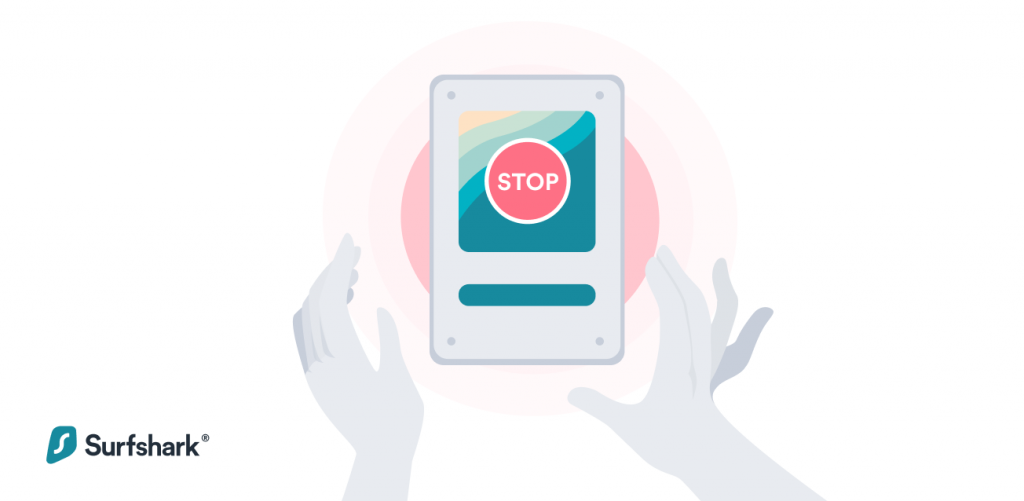
Surely, there are at least some features that a free VPN can offer, right?
Nope.
Let’s look at a few features you won’t get from a free VPN provider:
- A kill switch that disconnects you from the internet if your VPN connection fails. That way, you won’t unintentionally broadcast your traffic to your ISP and the internet.
- A split tunneling feature that’s for bypassing VPN routing for particular apps or websites. For example, online banking is moody when it comes to VPN usage, so you may want to avoid a VPN in that scenario.
- Obfuscated servers (“Camouflage mode” on Surfshark) conceal the fact that you are using a VPN in the first place. This will prevent services and websites from limiting your connection.
A free VPN doesn’t provide the same level of security as its paid counterparts and offers poor protection for your online activity. Some might have weak encryption or use shady practices like malware installation and ad injections, which puts your online privacy at risk. When it comes to protecting your online safety, you should never settle for anything less than the best protection possible.
If you aren’t convinced, we have a more detailed article that explains why a free VPN isn’t as safe as a paid VPN.
Why private browsing is not safe
Every major player in the browser game has some form of incognito mode. Most of them are named Private Window, InPrivate, Incognito Mode, or something else. There is a widespread false belief that this “incognito mode” safeguards your online privacy. Truth is, the name “private browsing” leaves a lot to be desired.
Private browsing does not give you the same protection as a VPN.
All Incognito mode does is clear cookies and your browsing history after you close the browser session. While your friend won’t be able to see your search history if they use your laptop, your internet service provider (ISP) still sees your internet traffic as well as your IP (Internet Protocol) address during the session.
On the other hand, VPNs conceal your online activity and your IP address from all parties. These include your internet service provider, making them far more private than “private browsing.”
People use VPN services to get around internet censorship, bypass ISP throttling, get access to blocked sites, and hide their IP addresses. Because incognito mode simply hides device history, you can’t browse in privacy, access restricted websites, or hide your IP.
How a VPN works
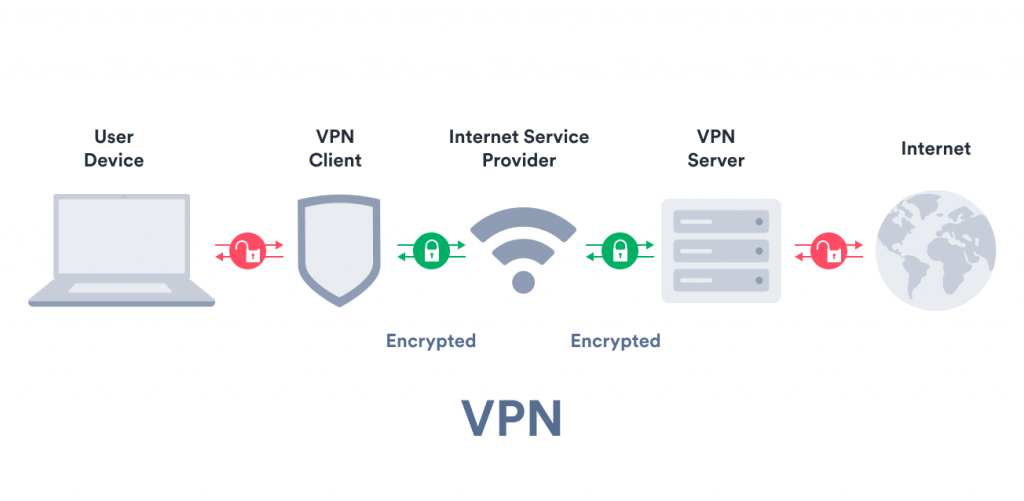
Let’s talk a little more about how a VPN protects you online.
When you connect to a VPN service, the app connects your device to a remote server. The VPN software will encrypt any data you send online. After that, the encrypted data is sent to the VPN server. Finally, the data is decoded and sent to its destination.
The VPN also replaces your IP addresses with the server’s. This way, all incoming and outgoing internet traffic from your device appears as if it’s originating from the server.
A VPN creates your own private tunnel.
Imagine the internet as a busy highway. The highway enables data to flow between servers and devices around the world. Instead of using the busy highway to travel, you travel via a private tunnel, aka a VPN.
This private tunnel provides a dedicated encrypted lane so that no one else can see where you’re going, where you’re coming from, or what you’re doing. A VPN protects your online activity in a similar way.
Although it may be used for many reasons, the primary function of a VPN is your internet traffic encryption, which is what gives you privacy. If you are curious, we have a lot more information about how VPNs work.
What makes a VPN safe?
Here are some things to look for in a safe VPN:
1. Secure protocols
A VPN protocol is a set of rules that must be followed to build or join a VPN. The most secure and best VPN protocols are WireGuard and IKEv2/IPSec. OpenVPN comes as a close third and achieves the same goals but is often slower and more complicated to use. All three protocols ensure top-notch VPN security in different ways.
2. No-log policy
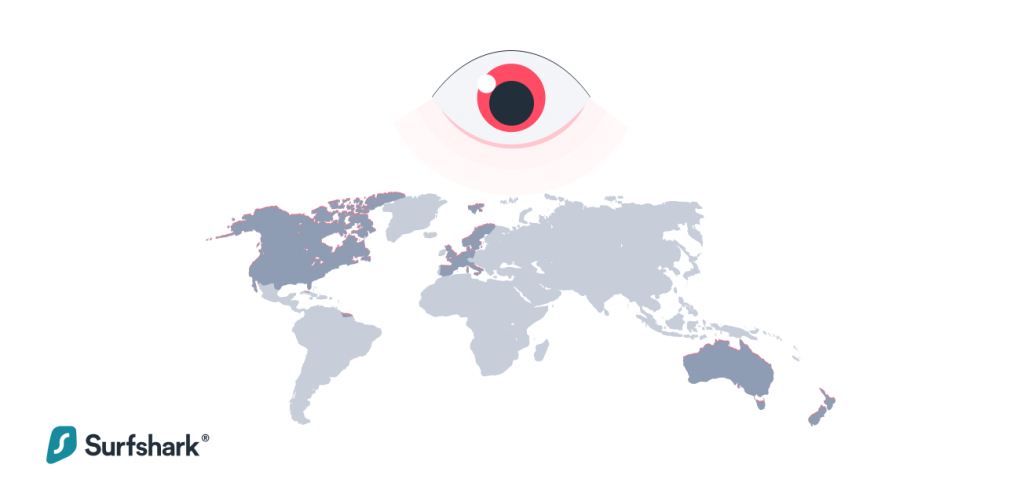
In short, a no-log VPN does not store any records of your online activities or locations.
A VPN with a no-log policy won’t collect private details such as:
- Your IP address;
- Browsing history;
- Used bandwidth;
- Session information;
- Network traffic;
- Or connection timestamps.
So, always make sure the VPN you use has a tight policy in place!
3. Paid instead of free VPN services
Although I’ve already covered this, I want to stress the message that not all VPNs are created equal. Free VPNs are not as safe, secure, or effective as paid VPNs. In fact, you may be putting your data and personal information at risk with a free VPN.
4. Kill switch
As mentioned above, a VPN kill switch is most likely only offered by paid VPN providers. If the VPN connection drops, a kill switch disconnects you. You won’t accidentally broadcast your data or IP address, even if the VPN fails.
5. Two-factor authentication
2FA (Two-Factor Authentication) is a way of applying an extra layer of protection to your account. A reputable VPN service should go out of its way to keep your information secure, and providing 2FA is a fantastic tool for that.
6. VPN provider history
Before signing up with a VPN company, do a quick search of the company’s history for any leaks, mishaps, or reported shady activity. You should choose a reputable company for the best and most secure VPN.
7. RAM-only servers
When servers run on volatile (RAM) memory, all information that would normally be on the hard drive is automatically erased once a server turns off. When all required operations run on RAM-only servers, no data can be physically removed from the servers.
Is Surfshark VPN safe?
Yes, Surfshark VPN is safe:
- We maintain secure VPN protocols.
- We maintain a no-logs policy – and have the audits to prove it.
- Surfshark VPN is a paid service (a VPN free trial does exist, though).
- We maintain a Kill Switch (and a Bypasser, and a No-Borders mode…)
- Surfshark uses two-factor authentication.
- We have a stellar history of not having leaks or suspicious business dealings.
- Our servers are 100% RAM-only.
- You can even pay for Surfshark with cryptocurrencies to maintain anonymity.
If our VPN was any safer, we – actually, I don’t even have a fitting metaphor, Surfshark is that safe. Oh, and it won’t alter with your device’s settings.
Final thoughts – are VPNs safe and worth it?
Yes, and yes. VPNs are safe, and you should invest in a paid VPN for the best protection.
Virtual private networks are essential for online security, especially if your internet connection is through a public Wi-Fi network. They allow you many great benefits, such as bypassing censorship and accessing blocked websites. However, their best feature is the digital privacy they provide.
A free VPN will most likely slow down your internet connection and put your online privacy at risk. A VPN service that costs a monthly membership fee and ensures your online privacy and security is one worth considering.
You can get Surfshark for an affordable price if you want to upgrade your online security with a reputable VPN provider.
